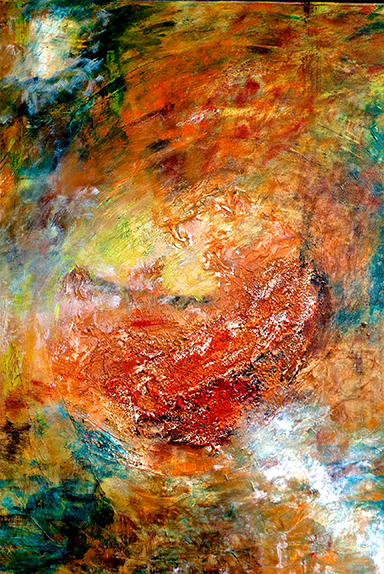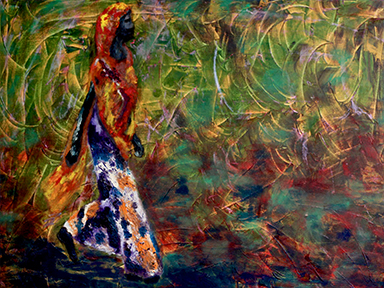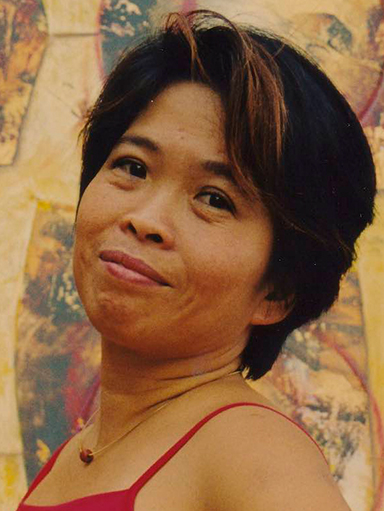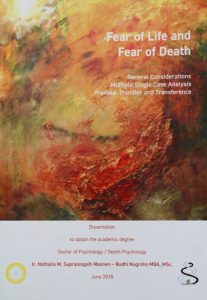The true meaning of depth psychology is to discover yourself.
Fundamentally, everyone is already equipped with all the competencies and qualities needed to cope with the challenges of life. Yet, …. many of us are not aware of our qualities, because for some reasons they are hidden in the unconscious part of our psyche.
It is not surprising therefore that, if you want to make use of them, often you will have to (re-)discover these hidden qualities, find out how to access them and what is stopping you from using them effectively.
- Find out about your mental blocks
- Discover what stops you from bonding with others
- Dealing with trauma
- Regaining self-esteem
- Rebuilding inner strength after a burn-out
- Finding your way out of mental problems
- Overcoming anxieties
- Balancing feelings and mind
- Dealing with restlessness and sleeping disorder
- Handling tension and stress
Meet your paradoxes!
You love somebody,
yet you also hate this person
You want to accept your own limitations,
at the same time you take on every task.
You think that you have the courage to do something,
but ultimately you cop out.
You want to build a strong social network,
but you are afraid to stand out.
You want to give responsibility to others,
yet every time you find yourself checking on them
“Balance mind & feeling:
A perfect symbol of no duality – that is, of Oneness”
Questions to yourself
Do you consider yourself important?
Do you want to take yourself seriously?
Do you really want to change?
Or, are you just adjusting to the wishes others?
Why can’t you change, whilst you really want to?
Do you repeatedly relapse into old behaviour?
“ To be non–dualistic, all of this part of the unity that is one.
We cannot say, it is here – It is not here.”
Method
Principles of Jungian analytical psychology.
C.G. Jung found that every human being has great powers hidden in the unconscious part of his psyche. As long as you are not aware of these powers, they will affect your feelings, emotions and behaviour in an uncontrolled and often unwanted way. This can be quite contrary to your conscious desires. The paradox that this creates can become a source of stress: You want to behave in a certain way, however unconsciously you act in the opposite way.
Obviously, the unconscious part of your psyche cannot be accessed through cognitive thinking. That is why Jung and his successors developed an approach that bypasses cognitive thought, which is often referred to as ‘active imagination’ (though other names are also used).
The Jungian approach can be divided into three phases:
Insight. Primarily, you work on gaining insight into your unconscious drivers, hidden convictions, shadows and belief systems. We will use different techniques such as hypnosis, active imagination, dream interpretation and the analysis of drawings. Your responses to the therapist’s initial questions and probes during a session and the spontaneous flow of that session will decide which of the above approaches we will apply. Sometimes, the individuation game (R.A.P.P.®) is used as a tool to make you aware of your qualities and of the motivators from your unconscious archetypes. The goal is to discover the true root of your psychological baggage and why this is so.
Acceptance. In this phase we will work on your acceptance of the discoveries that you have made during the insight phase. Before you can change them, first you have to accept that these unconscious drivers, hidden convictions, shadows and belief systems are a part of you. This phase will lead to a reorientation of your consciousness, a discharge of suppressed feelings and a new balance between your ability to cope and the issues that you are challenged to cope with.
Integration. Finally, you will make contact with all the elements that, together, make up ‘you’. The awareness that has now been created at a deeper level will allow you to be the ‘director’ of your own life: you have gained control over the way in which you deal with all that crosses your path and over your growth as an individual.
Fetus in the womb. Oil painting by Nathalia Moonen
Movement. Photography by Nathalia Moonen
Reflection. Photography by Nathalia Moonen
Coaching
Uncover Your Strengths.
Coaching helps you to shift perceptions and thus change the way you (inter-)act. You will learn to become aware of the impact you have on people around you and of your mental and emotional bagage. Among others, working on this with the help of a Jungian coach will enable you to:
- Discover your own strengths and qualities
- Learn to make choices and to say ‘no’
- Balance the influence of rational thought on your behaviour with that of feelings
- Relate better to yourself and to others,
- Balance your urge to be ‘in control’ with your desire let go.
- Discover what is your own responsibility, and what are its limits.
The Jungian approach to coaching will not just teach you a ’trick’ or train you to display ‘desired behaviour’ – which is ‘forgotten’ as soon as you come under some stress. You also don’t need to adapt to the demands of the people around you.
The coach will not tell you what [not] to do or how to do something. Instead, the coach will guide you to discover this by yourself and find out what works for you. You will experience what it is like to make your own choices and not be swept away in the flow of things.
Therapy
Be the director of your life.
Analytical therapy supports you to identify, acknowledge and change -or discard- psychological blocks. It goes beyond coaching.
This type of therapy aims to directly approach the experiences and feelings that caused these blocks in the first place. For this, a range of ’techniques’ such as hypnosis, active imagination, interpretation of dreams and the analysis of drawings can be used.
Sometimes, we use the individuation game (R.A.P.P.®) as a tool to make you aware of your qualities and of the drivers from your unconscious mind. Some of the issues that you and the therapist may be working on are:
- Getting in touch with your feelings
- Rebuilding your inner strength (e.g. after burn-out)
- Regaining self-esteem
- Deciding what it is that you really want to do and what not
Direction. Oil painting by Nathalia Moonen
When properly applied, analytical therapy leverages your intrinsic motivation for inner growth. We use this motivation to get you fully engaged in the therapeutic process. As a result, you’ll be more at ease with your own qualities, shadows and paradoxes. Some examples of concerns that clients have successfully been able to address as a result of our therapy:
Moving in the same direction. Photography by Nathalia Moonen
Training and Consulting
Create Different Outcomes.
Working as a team can sometimes be difficult because the team members are unaware how their actions and interactions are influenced by differences in their perception of ‘reality’ and how each individual may impact the others. Hidden expectations and patterns of action and reaction between team members can easily become ingrained and get in the way of effective collaboration. Creating a shared awareness and common ‘language’ is therefore a key to successful teamwork. Paradox Motion has developed a unique approach to achieve this.
We build a bespoke program to address the development needs and circumstances of any particular team. At the same time, all our training programs follow four key principles:
- Real change and improvements will only be achieved if team members change their actions. (“If you want to create different results, you’ll have to DO something different”)
- Language shapes the way people ‘observe’ (perceive, experience and understand) the world around them, which in turn determines their actions. (“It’s all about language …”).
- Each person can make his/her own choices and is responsible for those (“Everything you DO is a choice: own it!”)
- In teamwork, giving and receiving feedback, making requests and making offers are essential skills that are often poorly understood and that require practise. (“You are not alone!”)
However well set up, a few days training as a team is not enough to achieve significant and lasting ‘shifts’ in the way people observe and act. Following through with individual coaching is an essential element of our approach.
Our training is delivered in a workshop-like setting and is structured to provide a safe environment for participants to share their vulnerable side. If there is a need to also train particular concepts or skills, these will be integrated into the training program. Among our training clients are an international inter-governmental organisation as well as international consulting and engineering firms.
About
Paradox Motion
Paradox Motion helps clients to discover their hidden qualities and strengths.
Paradox Motion is an organisational consulting, coaching and therapy practise that has been founded in 2001 in the Netherlands by Nathalia Moonen. Paradox Motion is focused on helping people to discover, reinforce and leverage their intrinsic qualities and strengths:
• By getting to know the personal paradoxes,
• By experiencing and feeling that internal contradictions and tensions can tell much about one’s competences,
• By experiencing the power of the unconscious,
• By helping to discover one’s own authenticity and autonomy.
In this, the integration of internal contradictions – such as conscious and unconscious, male and female, black and white, yes and no- plays a crucial role.
I am Nathalia Moonen – Budhi Nugroho. I work as an independent psychotherapist in The Netherlands and Malaysia. I have a multidisciplinary and multicultural background. Born in Indonesia as a Chinese Indonesian, I moved to the Netherlands after graduating, where I lived and worked as consultant and therapist for more than 30 years. For the past nine years, I also spent much time in Kuala Lumpur, Malaysia. Beyond obtaining master degrees in Chemical Engineering, Business Administration and Psychology as well as a doctorate in (Depth) Psychology, I feel that her most valued learning comes from clients. Discovering, with each client, what drives that individual and helping to find back inner strength, gives me enormous satisfaction.
Nathalia Moonen
Interuniversity College for Health and Development; Graz, Austria
PhD Depth Psychology.
Dissertation: ‘Fear of Life and Fear of Death (General Considerations –
Multiple Single Case Analysis – Prenatal Transfer and Transference)’
Interuniversity College for Health and Development; Graz, Austria
Interuniversity Course for Complementary, Psychosocial and Integrated Health Sciences,
Master of Science (MSc); officially recognised by NUFFIC (Netherlands)
Thesis: ‘Who’s Me; The Psychology of Multiculturalism an Integration’
Jungiaans Instituut Nijmegen, The Netherlands
Qualified Jungian Analytical Therapist and Coach
Erasmus Universiteit Rotterdam, The Netherlands
Post Graduate Course ‘Policy Making and en Management in Healthcare’
Erasmus Universiteit Rotterdam, The Netherlands
Faculty: Business Management
Sub-faculty: Business Informatics and Quantative Methods
Master of Business Administration (MBA)
Institut Teknologi Bandung (Bandung University of Technology), Indonesia
Faculty: Chemical Engineering
Chemical Engineer (Ir.)
Languages
Bahasa Indonesia: mother tongue
Dutch: fluent
English: proficient
Member of J.V.A.T.N.
Paradox Motion, Practice for Jungian Analytical Therapy and Coaching
Nathalia Moonen – Budhi Nugroho – Analytical Therapist and Coach
Moonen-Budhi Nugroho, N.M.S. (2017). Fear of Life and Fear of Death, Part I: General Considerations.
Journal of Prenatal and Perinatal Psychology and Health, volume 31(4), (ISSN 1097-8003).
Moonen-Budhi Nugroho, N.M.S. (2017). Fear of life and fear of death, Part II: Multiple single case analysis.
Journal of Prenatal and Perinatal Psychology and Health, volume 31(4), (ISSN 1097-8003).
Moonen-Budhi Nugroho, N.M.S. (2018). Prenatal transfer and transference of fear of life and fear of death.
International Journal of Pregnancy & Child Birth, Volume 4 (3)
Contact Me
Malaysia
7, Impian Bukit Tunku
8, Jalan Tunku
50480 Kuala Lumpur
+60 (0) 10 226 0408 (M)
+60 (0) 3 6211 9893 (P)
The Netherlands
Brugwacht 124
2353DP Leiderdorp
Netherlands
+31 (0) 6 5357 5255 (M)
+31 (0) 71 589 8610 (P)
Email
nathalia@paradoxmotion.nl









